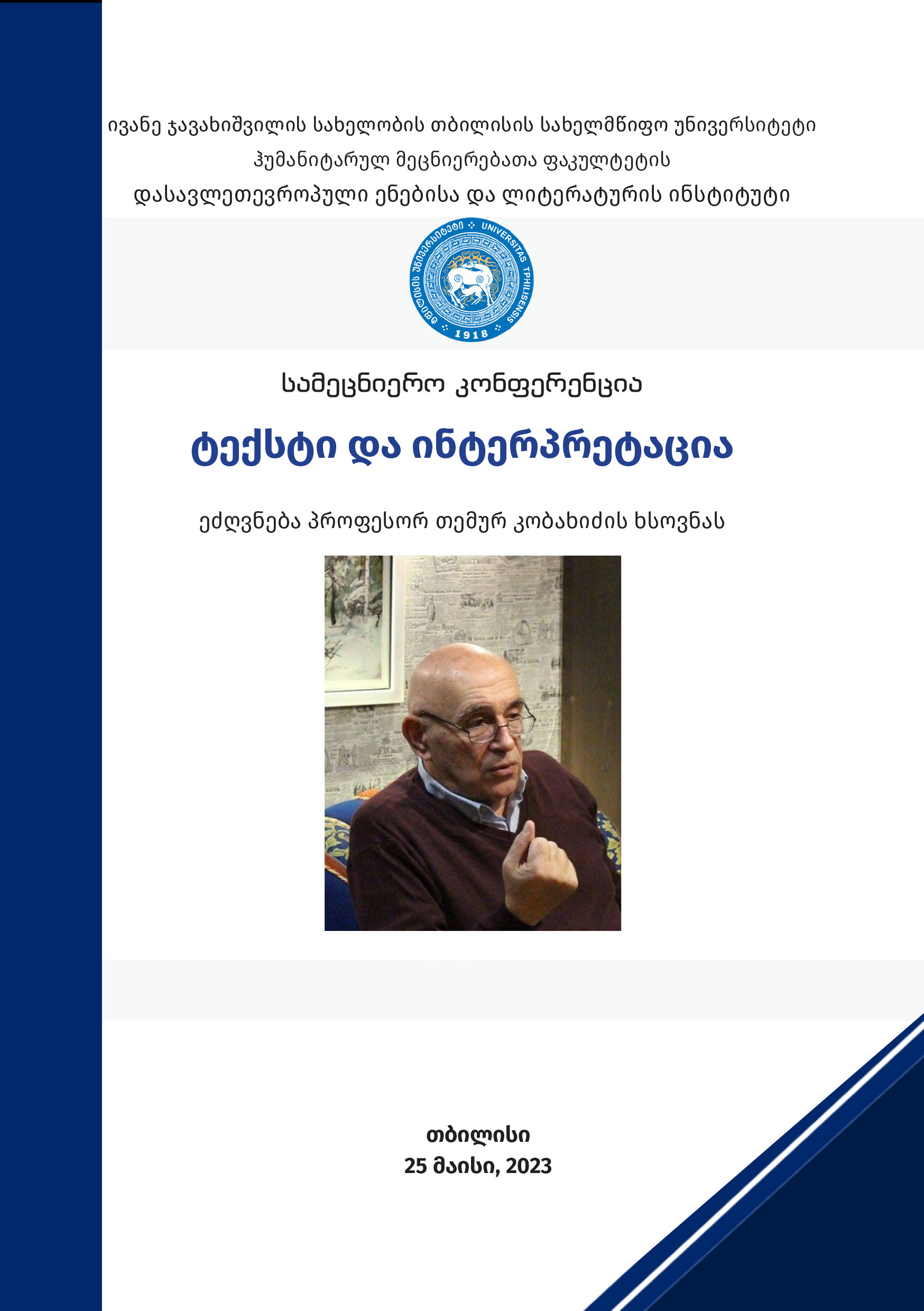Sarah Kane’s Cleansed and the interpretation of George Orwell’s 1984 in the play
DOI:
https://doi.org/10.55804/jtsu-2960-9461-2023-19Keywords:
Kane, Cleansed, In-yer-face-theatre, Orwell, 1984Abstract
The article gives detailed analysis of Sarah Kane’s play Cleansed and the influence and interpretation of George Orwell’s novel 1984 in the play.
Sarah Kane was the first dramatist, who fundamentally changed the 90’s British theatre and after her first play “Blasted” that was very scandalous the new style of plays became dominant on British stage called “In –yer- face” theatre.
According to Sierz the widest definition of in-yer- face theatre is any drama that takes the audience by the scruff of the neck and shakes it until it gets the message. (Sierz 4: 2001)
The primary function of this kind of theatre is to cause sensation. In-yer-face theatre urges the audience and actors to deviate conventional norms and takes the audience an emotional journey, getting under their skin.
A play’s content may be provocative because it’s expressed in confrontational language or stage images, but its power as drama greatly depends on its form. The further a play departs from the conventions of naturalism, especially those of three-act drama, the more difficult it is for many in the audience to accept. It’s easy for the audience to accept shocking material if it’s described traditionally.
This kind of play is Sarah Kane’s Cleansed that was premiered in April 1998, that marked her return not only the Royal Court but also for the first time onto the main stage in one of the major productions of that season.
As David Greig mentions in the introductions of her complete plays, Cleansed is yet another step away from naturalism. She completely striped away the explanatory narrative and presented the audience with a series of poetic images and pared dialogue.” (Greig: 3. 2001)
The set of the play develops in a former university now transformed into some kind of an institution where one of the main character Tinker controls and transforms the characters.
The episodic structure of the play is taken from Georg Buchner’s Woyzeck that was staged by her in 1997. The story and the structure of the play is disconnected.
The couples and their love story are presented throughout the play such as: the identical twins Grace and Graham, Carl and Rod, Grace and Robin, Tinker and Woman, Tinker and Grace. Each relationship is broken and doesn’t have a happy ending of course but the main question of the play is what one can endure for the sake of love.
Besides of the fact that Tinker is in the role of Big Brother and sees everything: “Tinker is watching”, the direct allusion in the play is Carl’s words: “Carl - Not me please not me don’t kill me Rod not me don’t kill me ROD NOT ME ROD NOT ME.” (Kane 2001:117).
We may think that Kane like Orwell creates some kind of micro-world, where rules and regulations are constructed only to torture humans, therefore they could not have time to love and be happy.

